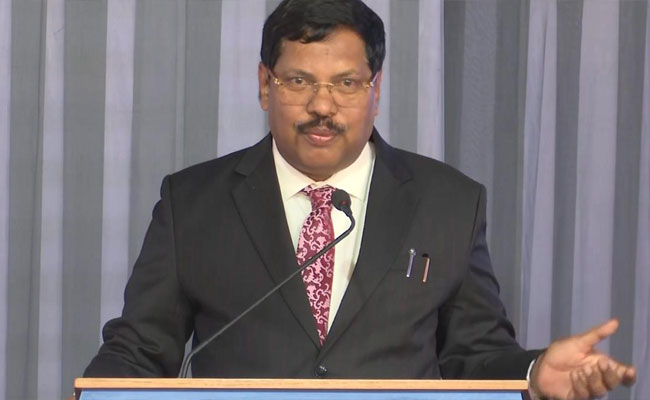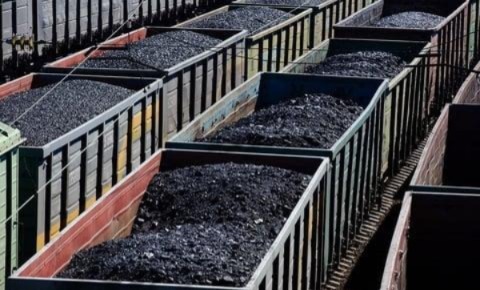Nagpur: Chief Justice of India BR Gavai has reiterated that the Supreme Court does not function as the personal court of the Chief Justice, but as a collective institution guided by the wisdom and opinions of all its judges. Speaking at a felicitation event organized by the High Court Bar Association of Nagpur, his hometown, CJI Gavai emphasized the principle of judicial equality and collaborative decision-making within the apex court.
Echoing the stance of his predecessors, Justices UU Lalit and Sanjiv Khanna, CJI Gavai stated, “Like Justices Khanna and Lalit, I too am a firm believer in the principle that a CJI is only the ‘first among equals’ and not the ‘Master of the Supreme Court.’”
He noted that administrative decisions of the Supreme Court are not taken unilaterally by the Chief Justice but through full court deliberations. He cited the recent example of a full court meeting held after his elevation to the office, similar to the one convened by Justice Khanna. “There is a growing belief that the SC is a CJI's court and not the court of all the judges. But I must say, with a matter of pride, that Justices Lalit and Khanna and even I have attempted to dispel this notion,” he said.
CJI Gavai specifically referred to the removal of glass panels from Supreme Court corridors, a decision publicly clarified as one taken by the full court to address concerns raised by the bar and to restore the institution’s original grandeur.
Addressing the broader role of the judiciary, CJI Gavai asserted that judicial activism becomes necessary when other branches of the State, namely the legislature and executive, fail to protect citizens’ rights. However, he cautioned that such activism should not devolve into “judicial adventurism or judicial terrorism.”
“I always felt that judicial activism was necessary because whenever the executive or the legislature fails, the judiciary has to step in as a custodian of the rights of the citizens,” he said, while underscoring the importance of each constitutional wing functioning within its designated sphere.
Highlighting the ethos of judicial service, the CJI remarked, “Judgeship isn't a job but a service to society and the nation.” He added that he continues to see himself as a learner, drawing insights from peers and colleagues across the legal fraternity.
Commenting on the functioning of the Collegium system for judicial appointments, CJI Gavai said that efforts are underway to maintain transparency and uphold seniority and merit. “We are interacting with candidates, and we find that interactions work their way out,” he said, citing the elevation of Justice Atul Chandurkar to the Supreme Court as a recent example of merit-based appointment.
In a related remark at the same event, Justice Dipankar Datta stated that not all recommendations of the Supreme Court Collegium are acted upon, often due to ‘external forces.’
Let the Truth be known. If you read VB and like VB, please be a VB Supporter and Help us deliver the Truth to one and all.
Shillong (PTI): As the Meghalaya High Court pulled up the state government over the disappearance of over 4,000 tonnes of coal, a minister on Monday claimed that heavy rain in the state might have washed it away.
The high court has directed the state government to take action against officials under whose watch the coal went missing.
Speaking to reporters, Excise Minister Kyrmen Shylla said, "Meghalaya receives the highest rainfall. You never know... because of rain, the coal might have swept away. Chances are very high."
The high court had on July 25 pulled up the state government over the vanishing of coal from Rajaju and Diengngan villages and instructed it to trace those responsible for lifting the coal illegally.
The minister, however, clarified that he was not trying to justify the disappearance, and admitted there was no conclusive evidence yet to determine whether the loss was due to natural causes or any illegal activity. "I cannot blame just the rain. It could be or it could not be. I really don't have any kind of details," he said.
He asserted that any activity related to coal mining or transportation must be done in accordance with the law and that authorities must ensure illegal practices are curbed.
On allegations of ongoing illegal coal mining and transport in the state, Shylla said concrete evidence was needed to establish such claims and that multiple departments were responsible for monitoring such activities.
"But I believe that our people, if it is for survival, might do it illegally... otherwise nobody wants to do anything that can harm the state," he said.
He expressed optimism that people would abide by the law, especially after the government's announcement of scientific mining.
"We all are happy to welcome it, and we want to see the light of day with this. I believe our people will not do anything that gives the court or law a chance to point fingers at us," he added.
The ban on coal mining and transportation in Meghalaya was imposed by the National Green Tribunal (NGT) in 2014, citing rampant unregulated and unsafe mining practices, especially the controversial 'rat-hole' mining technique prevalent in the state.
The tribunal's order came in the wake of mounting concerns over environmental degradation, water contamination, and frequent fatalities in the hazardous mines, particularly in East Jaintia Hills.
On a separate note, the minister also responded to complaints over the dust and debris caused by the ongoing construction along National Highway 6 in East Jaintia Hills, saying, "I appreciate this government for the initiative. For now, it is difficult, but once everything is completed, we will enjoy the benefits."



